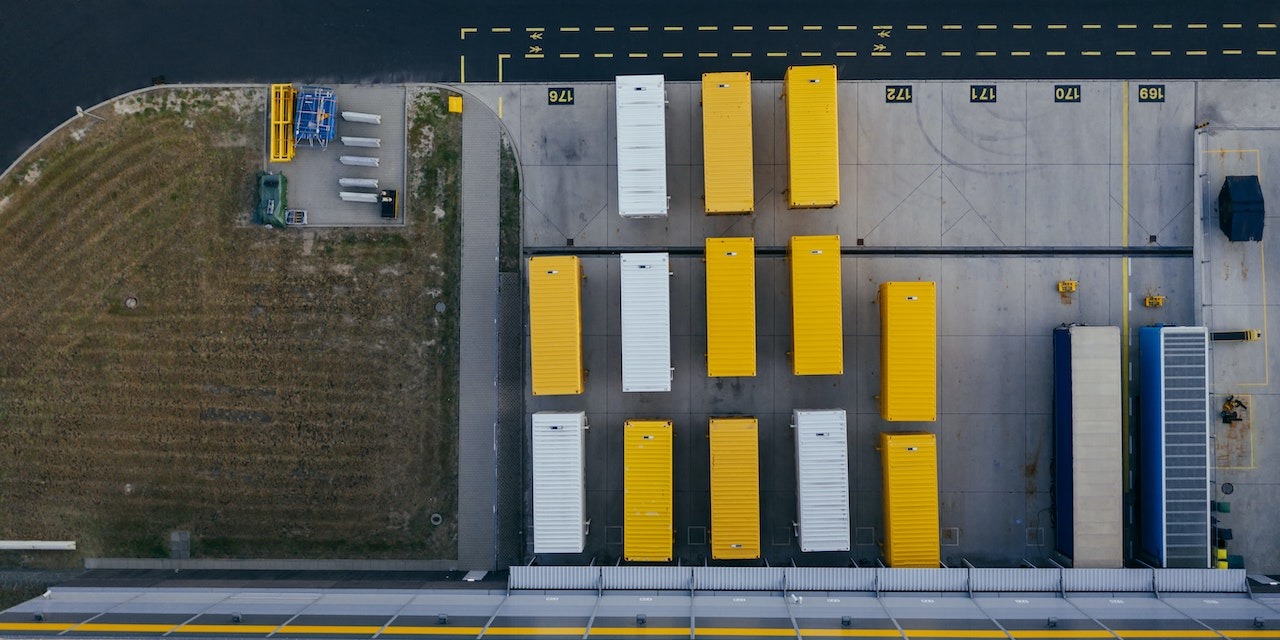In order to answer your request, we are obligated to process the data given above. Sometimes, however, we would like to use them for slightly different purposes, such as statistical data or informing you about our new products and services.We promise that we will use the given information for communication purposes only. We also remind you that you can unsubscribe from our mailing at any time (see Privacy Policy).
For this reason, the processes linked to the movement of goods and free trade will need to be fundamentally redefined, while the potential challenges and problems it will create will affect both economic entities in the UK and businesses in Europe. After Brexit, the English Channel has de facto become a border between the UK and the European Union. As a result, the delivery of online purchases from warehouses in the UK to European buyers will now take longer, cost more, and will be subject to customs duty. What will such delays and challenges mean for UK online stores and their European customers? Is it possible to prepare ourselves for the new reality?
System and customs procedures
Customs procedures in intra-EU transport have become downplayed over the years; however, the efficient execution of export and import customs control is currently being organized anew. The various modes of transport are doing the best they can, while I believe that Brexit will have the most significant impact on road transport due to the high annual volume of transport transactions. In the first six months of 2021, quotas may prove to be an interesting solution, with the period of remodeling applicable regulations from square one likely to burden both parties.
Local logistics infrastructure
The local logistics infrastructure in the British Isles will see a large increase in demand about supply in the first year, resulting in the creation of many local distribution centers. I anticipate that at the start, British ecommerce stores will be more likely to use the services provided by local logistics operators due to time pressure and new regulations. This trend will continue until consumption in the market equalizes and decreases.
International clients
For many economic entities who have already cooperated in the traditional secondary market (USA), there will be few changes to the services provided within the EU. The biggest change will be the difference in Time To Market, which will now be extended, and the need for more effective management of the available stock.
Indicators of the capacity to serve potential markets
Ecommerce stores located in the UK are asked to make countless decisions and are faced with a multitude of problems. Where should they register their business? How should they make purchases from a supplier of goods and how should they divide them? Which bonded warehouse should they choose? Or perhaps they should go for conventional import and stop worrying? Finally, how susceptible is their current target group to such changes?
The transformations currently taking place and the associated costs will place a direct burden on the logistics infrastructure. They may impede transport operations, influence the functioning of warehouses and force the rethinking of fulfillment operations. It is to be desired that these burdens do not continue for an excessive period. Competent advisors and logistics operators will be the main link in ensuring that the impact felt by dealers and end customers is minimized.
What will change?
The fast shipping of products across Europe from a warehouse near London will now be transformed into classic export services, which require more time and money in addition to the need to determine entirely new processes.
From the point of view of the end customer making regular online purchases, the most important elements will now be the order completion time and the lack of delivery-related complications. It will not be acceptable to wait more than 48 hours for a package (although COVID-19 has made us a little bit more patient in this regard) and to receive a letter from the customs office requesting us to pay customs and tax duties. The emergence of such problems may result in an outflow of foreign customers of British online stores, which will find it difficult to maintain adequate customer service.
E-stores in the UK will seek every possible opportunity to meet the expectations of their customers, and the most cost-effective way to do so will be to have a legal personality in the EU and use a warehousing hub to serve the Community markets. The import of goods from the producer to the UK and then their export to the EU will be completely unprofitable, as this process will generate significant additional costs and will extend the entire order handling process.
Operator to the rescue
Any competent fulfillment operator is aware of the direct impact of the quality of service on the decisions of the end customer buying online, including the fact that the courier is a direct “representative” of the store to the end customer and a great deal of emphasis on effective presentation and attitude is necessary. A logistic hub within the EU reduces needless logistics costs as well as the time required to process an order, while local couriers fittingly represent the seller to the end customer, who has very specific delivery preferences.
However, nothing ever happens without sacrificing the other party, and in this case, it requires the store to manage sales and stock availability separately for the EU market, which without suitable preparation may generate additional work and costs.
Returns and complaints – a huge challenge?
The handling of returns and complaints within the territory of the EU is a completely divergent problem for British online stores. Without a doubt, it all hinges on the business model; however, when creating a complaint handling system, it is worthwhile to know the logistical potential, as logistics can support or interfere with the return and complaint management process. I prefer to discuss such challenges openly so that the process is consistent and well-timed. I dislike leaving the aspects of sales or after-sales support without safeguarding the interests of the customer. For this reason, I believe that complaint handling should be embedded in the reality of a standard fulfillment service (same warehouse/operator), as this reduces costs, while the know-how of the process, product knowledge, and the potential quality assessment are in the right hands. It is not always possible to put everything together perfectly, and it is necessary to use regional complaint handling centers, always adhering to cost and time optimisation rules to assess complaints in line with the business assumptions of the customer.
Brexit is supplying the British ecommerce market with a series of challenges in handling orders placed by European customers; in fact, it radically changes the entire sector. The delivery time and costs of products sent from the UK to the buyers on the continent may become an insurmountable obstacle, while the British online stores may resort to solutions that use logistical support and fulfillment located across the EU.





